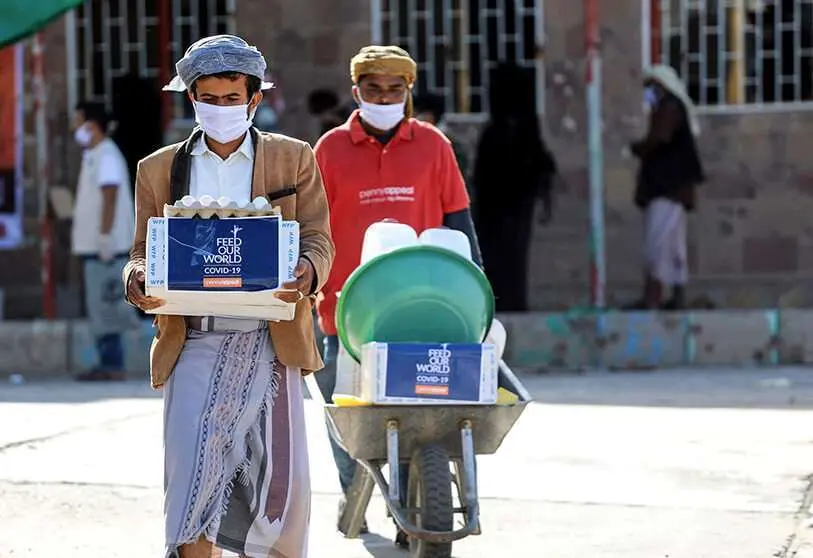Food at risk from coronavirus in the Middle East and North Africa

The socio-economic crisis that the new coronavirus pandemic is causing and the steep rise in food prices may soon cause an additional 6.9 million people in the Middle East and North Africa to have difficulty feeding themselves. "With 6.9 million extra people, the total number of food insecure people in the region will increase to more than 47 million," said World Food Programme (WFP) spokesperson Elisabeth Byrs.
The situation of most people in both areas is one of low savings, no unemployment insurance and declining food subsidies, in labour markets dominated by informality and where families lose their livelihoods if quarantines are imposed. Against this background, WFP provides food assistance to more than 23 million people in the Middle East and North Africa, many of whom would not be able to survive without it, Byrs said at a virtual press conference from Geneva. Two-thirds of the recipients of this aid - 16 million people - are in two countries involved in conflict: Yemen, with 8 million people, and Syria, with 4 million. According to WFP data, the Middle East is home to 20 percent of all the world's acutely food insecure or hungry people.
The arrival of the pandemic represents a very real and serious threat to the region, which includes fragile countries with large populations and limited resources, such as Egypt, Sudan, Tunisia and Lebanon, as well as Iran, which is subject to international sanctions and was initially one of the countries most affected by the coronavirus. In North Africa, the WFP assessment also includes Libya, which has been in internal conflict for five years and is the arrival point for migrants from the continent trying to reach Europe via the Mediterranean, and where many are stuck.
Most of these countries are net food importers and spend about $110 billion on food purchases abroad, making them very vulnerable to international trade restrictions and border closures.
Because of COVID-19, the UN humanitarian agency has also modified its school feeding programmes, which involved 3.8 million children in a total of 11 countries. In cases such as Yemen and Libya, rations have been prepared and taken home by children or distributed door to door by teachers who have been trained to do so without any risk of contagion. In addition, the agency has noted the rise in the price of basic foodstuffs in at least three countries: Sudan, Yemen and Syria. In all three cases, April's increases ranged from 15 to 19 per cent over previous months.








